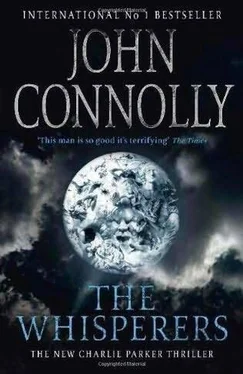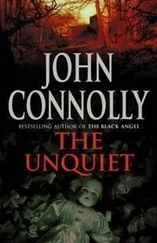The brass told them that they were ready to deploy, ready to fight, but they didn’t even have body armor.
‘That’s ’cause the Iraqis ain’t going to fire at you,’ said Lattner. ‘They’ll just use sarcasm, and say mean things about your moms.’
Lattner, who was a long drink, maybe the tallest man he’d ever met, always called them his ‘moms’ and his ‘pops’. When he was dying, he asked for his moms, but she was thousands of miles away, probably praying for him, which might have helped. He was dosed up to take away some of the pain, and he didn’t know where he was. He thought that he was back in Laredo. They told him that his moms was on her way, and he died believing it.
They scavenged scraps of metal and flattened cans to make their own sappy plates. Later, they took body armor from dead Iraqis. The men and women who came later would be better equipped: pads, eye pro, Wiley-X sunglasses, even pieces of green card with answers to possible media questions, because by then it was all going to hell, jizzicked to fuck and back, as his old man used to say, and they didn’t want anybody speaking out of school.
There were no showers at the start: they bathed out of hard hats. They lived in ruined buildings and, later, five to a room without A/C in 130-degree heat. No sleep, no showers, weeks in the same clothes. In time there would be air-conditioning, and containerized housing units, and proper shitters, and a MWR center with Playstations and big-screen TVs, and a PX selling lame ‘Who’s Your Bagh-Daddy?’ t-shirts, and a Burger King. There would be Internet terminals, and phone centers open 24/7, except when a soldier was killed, when they would be closed until the family was informed. There would be a concrete mortar bunker by the door of the conex, so that you didn’t have to face them out in the open.
But he didn’t care about the difficulties, not at first. You didn’t sign up because you wanted to stay home and see out your time stateside. You signed up because you wanted to go to war, and what was it Secretary Rumsfeld said? You go to war with the army you have, not the army you wish you had. Then again, Secretary Rumsfeld still had all of his limbs, last time he looked, so it was kind of easy for him to say.
He had some tattoos on his arms: stupid childish shit, but not gang-related. He wasn’t even sure that there were any gangs in Maine worth getting tattooed over, and even if there were, the tattoos wouldn’t have meant much to real hardasses like the Bloods and the Crips. The army would eventually add another tat of its own: his dog-tag information was etched on his side, his ‘meat tag,’ so even if he was blown to pieces and his dog tags lost or destroyed, his body would still bear his identity. A staff sergeant promised a waiver for the old tats when he enlisted, even offered to clear up any minor criminal stuff that might have been on his sheet, but he didn’t have so much as a DUI to his name. He was guaranteed the good life: a signing bonus, paid leave, and a college education, if he wanted it, once he’d completed his time. He scored over 80 percent on the Vocational Aptitude Battery, the Army’s SATs, which made him eligible for a two-year enlistment, but he signed up for four. He didn’t have a whole lot else going on anyway, and a four-year enlistment meant that he would be guaranteed a slot with a particular division, and he wanted to serve with other men from Maine, if that was possible. He’d enjoyed being a soldier. He was good at it. It was why he reenlisted. If he hadn’t, then things would have been very different. The second time was the doozy. The second time was the killer.
But that was years away. First off, he was sent to Fort Benning for fourteen weeks of training, and he thought he was going to die on the second day. After basic, they gave him two weeks to kick around, then put him on the Hometown Recruiting Assistance Program where he was supposed to recruit his buddies in a Class A uniform, the army’s equivalent of a pyramid selling scheme, but his buddies weren’t buying. That was when he met Tobias. Even then, Tobias was an operator. He had a way of forming alliances, of cutting deals, of doing small favors that he could call in at a later date. Tobias took him under his wing.
‘You don’t know beans,’ Tobias told him. ‘You stick with me, and I’ll educate you.’
And he did. Tobias looked out for him, just as, in time, he himself had looked out for Damien Patchett, until the roles were reversed, and the bullets came, and he thought:
I am bait. I am a stalking goat.
I am going to die.
I was back at Joel Tobias’s place early the next morning. Instead of the Saturn, which, as on the night before, I sometimes used for surveillance, I’d been forced to drive the Mustang, just in case Tobias had any suspicions that he was being followed after our encounter the previous night. The Mustang wasn’t exactly inconspicuous, but I’d parked behind a truck in the lot of the Big Sky Bread Company on the corner of Deering Avenue, and had angled myself so that I could just about see Tobias’s house on Revere from where I was, but he would have trouble spotting me unless he came looking. His Silverado was still in the drive when I parked, and the drapes remained drawn at the upstairs window. Shortly after eight, Tobias appeared at the front door wearing a black t-shirt and black jeans. There was a tattoo on his left arm, but I couldn’t tell what it was from a distance. He got in his truck and hung a right. Once he was out of sight, I went after him.
There was plenty of traffic on the streets, and I was able to stay well back from Tobias while still keeping him in sight. I nearly lost him at Bedford when the lights changed, but I caught up a couple of blocks later. Eventually, he pulled into a warehouse complex off the Franklin arterial. I drove by, then slipped into the lot next door, where I watched Tobias park by one of three big rigs parked close to a chain link fence. He spent the next hour performing routine maintenance checks on his rig, then got back in the Silverado and returned to his house.
I filled up the Mustang’s tank, bought a cup of coffee at Big Sky, and tried to figure out what I was supposed to be doing. All that I knew so far was that Tobias’s finances didn’t add up, and he might be having troubles with his girlfriend, as Bennett had suggested, but I couldn’t help feeling that, in the end, little of this was any of my business. In theory, I could have stayed with him until he embarked on his planned run to Canada, followed him across the border, and then waited to see what transpired, but the chances of his not making me if I did follow him all the way up there were pretty slim. After all, if he was engaged in illegal activity, he was likely to be alert for any kind of surveillance, and a proper pursuit would require two, maybe three vehicles. I could have brought in Jackie Garner as the second driver, but Jackie didn’t work for free, not unless he was guaranteed a little fun and the possibility of being able to hit someone without legal consequences, and following a truck up to Quebec hardly sounded like Jackie’s idea of a good time. And if Tobias was smuggling, so what? I wasn’t an arm of US Customs.
The issue of whether or not he was hitting his girlfriend was another matter, but I couldn’t see how my involvement was going to improve that situation. Bennett Patchett was in a better position to make a discreet approach to Karen Emory than I was, perhaps through one of her female colleagues at the diner, since a complete stranger coming up to her and asking if her boyfriend had beaten her up lately was unlikely to endear himself to her.
I called Bennett’s cell phone. It went to voice mail, so I left a message. I tried the Downs, but he wasn’t there, and the woman who answered the phone told me that she didn’t expect him today. I hung up. My coffee was going cold. I opened my window and poured it out, then tossed the paper cup in the back of the car. I was bored and frustrated. I took a James Lee Burke novel from the glove compartment, sat back in my seat, and started to read.
Читать дальше












